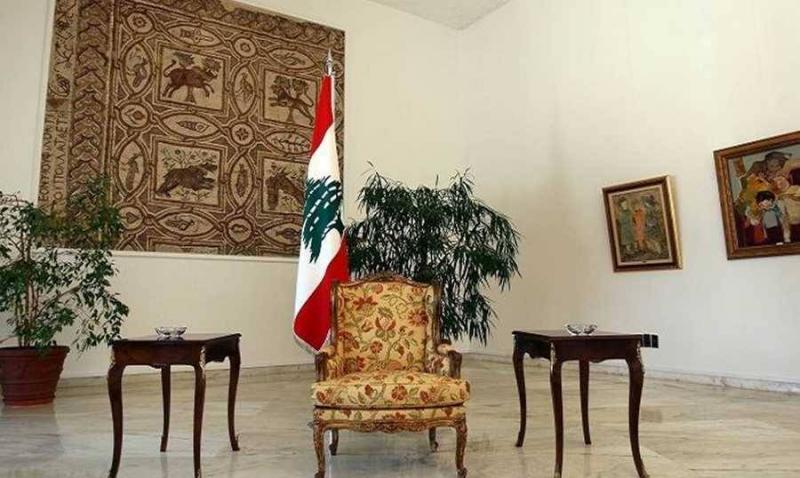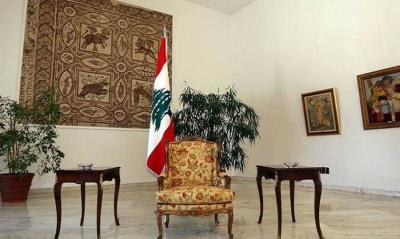Most ambassadors from the Quintet committee are acting as if the expansion of the war to include southern Lebanon is imminent, and the statement they issued at the invitation of U.S. Ambassador Lisa Johnson is seen as their final warning to parliamentary blocs, hoping they might take the necessary political steps to ease the impasse surrounding the presidential election. This could provide support for international pressures to prevent Israel from expanding its conflict under the pretext of giving U.S. envoy Amos Hochstein a chance to restore calm to the southern front, paving the way for the implementation of Resolution 1701. However, Washington finds no justification for Hezbollah to prioritize a ceasefire on the Gaza front while insisting on postponing the presidential elections.
Members of parliament and ministers report that ambassadors say the factor of time should motivate the election of a presidential candidate, as Lebanon, according to their assertions to "Asharq Al-Aawsat," is now facing a race between de-escalation in the south and the expansion of war. The threats issued by Israeli Prime Minister Benjamin Netanyahu regarding this expansion reflect his intention to turn Lebanon's summer into a "hot" one, in response to his pledge to repatriate settlers displaced from settlements near Lebanon's international borders back to their homes by September.
The ambassadors have warned Lebanon of the implications resulting from developments in the south if its officials lose focus and do not seriously address Israeli threats, noting that the confrontation in the south between Israel and Hezbollah has moved beyond the latter's support for Hamas to dragging it into a real war, as the intensity of clashes has escalated beyond the established rules of engagement.
The ambassadors have pointed out that Israel is trying to provoke Hezbollah into expanding the war, although Hezbollah is adhering to a policy of restraint and is not being dragged into it. They questioned whether Iran would adhere to its previous commitments regarding this matter after the death of its Foreign Minister, Hossein Amir-Abdollahian, who was responsible for regulating the pace of the war in Gaza to prevent its spread into southern Lebanon.
In this context, it has been reported, according to a statement from one of the ambassadors in the Quintet to a number of lawmakers, that he and his colleagues read from the same book in their approach to the presidential election, denying any divergence within the committee, particularly between Washington and Paris. This was confirmed by the statement they issued during a meeting that included not only Ambassador Johnson but also ambassadors from Saudi Arabia, France, Egypt, and Qatar.
Lawmakers believe that the Quintet ambassadors have preemptively thwarted any hopes of those who might think their differences on the presidential file run deep. They relayed the ambassadors' confirmation of the necessity to elect a president, which is set to be on the agenda of the upcoming French-American summit between Presidents Emmanuel Macron and Joe Biden scheduled for June 10. These lawmakers, including those affiliated with the Moderation bloc, were also informed by the French ambassador that Macron may send his presidential envoy, Jean-Yves Le Drian, to Beirut within the coming week on an urgent mission aimed at urging parliamentary blocs to convene for the election of a president today rather than tomorrow, as there’s a need to restore authority in a way that leads to the formation of an effective government that addresses southern Lebanon and works to calm the situation there.
The lawmakers affirmed that Le Drian's visit occurs amid the difficult circumstances faced by Lebanon and against the backdrop of escalating military confrontations in southern Lebanon, almost as if it is the last opportunity to urge parliamentary blocs to restore order to constitutional institutions through the election of a president. This could send a message to the French-American summit to strengthen their position to pressure Israel to prioritize a diplomatic solution to halt deteriorations on the southern front, so as not to let the situation spiral out of control.
As for the opposition forces, they are reportedly satisfied, as their sources tell "Asharq Al-Aawsat," with the statement released by the Quintet ambassadors, viewing it positively and unconditionally as the first step necessary to extricate the presidential election from complex preconditions. They assert, at the same time, that it has outlined a general roadmap based on agreeing on a presidential candidate. If parliamentary blocs cannot reach an agreement on a name, it is imperative to go to parliament with a list of limited candidates to elect one of them in an open parliamentary session that will continue until the election occurs.
The same sources confirmed that the blocs fully adopt what the ambassadors outlined in their statement. They also noted that they adopted the initiative put forth by the Moderation bloc, stating that the ball is now in the court of the "Resistance Axis," particularly Hezbollah, which is shutting the door on efforts to elect a president and prioritizing Gaza. They emphasized their stance on the necessity of favoring a third presidential option, which is currently under international and regional attention, highlighting remarks made in this regard by the former head of the Progressive Socialist Party, Walid Jumblatt, during his visit to Qatar.
Will pressures lead to a softening of the "Resistance Axis" stance? How will Speaker of Parliament Nabih Berri react? And how prepared is Paris to send Le Drian to Beirut after the helicopter crash that killed Iranian President Ebrahim Raisi and Minister Amir-Abdollahian?




